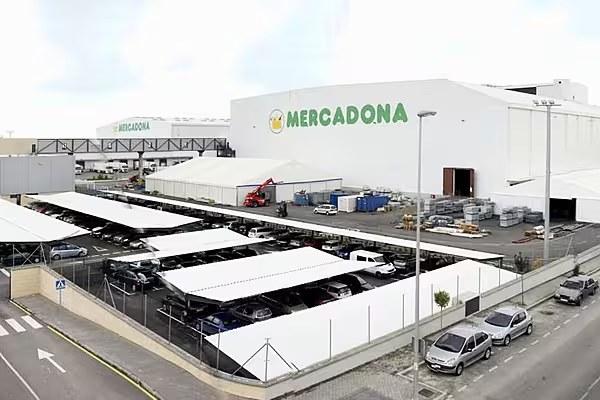Spanish retailer Mercadona has been awarded its first Lean & Green star for reducing CO2 emissions in its logistics processes by 27% in 2020.
Mercadona designed and implemented an Emissions Reduction Plan to achieve this target.
The Lean & Green certification, awarded by the Association of Manufacturers and Distributors (AECOC), is one of the largest European collaboration platforms focused on reducing emissions associated with the supply chain.
The initiative aligns with the objectives set by the Paris Agreement (COP21) to achieve climate neutrality by 2050.
The retailer has been a member of Lean & Green since 2020, along with more than 200 European companies.
The membership requires members to have a traceable and transparent emissions monitoring system and share good practices with other national and international companies.
Recently, the company announced an investment in a new logistics centre in Getafe, Madrid, that will cater to 89 stores in central Spain as well as its online store, Colmena.
Lean & Green Programme
The Lean & Green program is structured in five levels, each with quantifiable greenhouse gas reduction targets.
Companies earn a start upon accomplishing the objective of each level, up to a total of five.
Mercadona will continue working on its plan until it achieves the objectives that it has set for the following levels.
Director of sustainable transport at Mercadona, Paco Roselló, said, "The values of Lean & Green are aligned with the objectives of Mercadona's sustainable transport model and logistics optimisation."
"Joining Lean & Green has meant improving traceability and transparency, but above all, it helps us to be more demanding with ourselves and advance in the objectives set by the European Green Pact."
Sustainable Logistics
Mercadona said that it has continued to review its logistics processes and introduce improvements that, as a whole, have made it possible to optimise the supply chain to make it increasingly sustainable.
It has incorporated solutions including the use of less polluting fuels such as liquefied natural gas (LNG) or compressed natural gas (CNG).
It has also improved the gases used in vehicle refrigeration equipment, and renovated its fleet towards more advanced and efficient engine standards with last-mile deliveries in urban centres carried out by trucks with the most restrictive emission control regulations.
At the end of 2020, Mercadona's efforts resulted in 99% of its fleet meeting the Euro VId standard.
The number of trucks powered by LNG and CNG reached around 103, with the implementation of silent logistics in off-peak hours in more than 700 stores.
For home deliveries and online orders, the company has introduced bi-fuel vans and pilot projects for electric vans.
© 2021 European Supermarket Magazine. Article by Dayeeta Das. For more Supply Chain news, click here. Click subscribe to sign up to ESM: European Supermarket Magazine.













